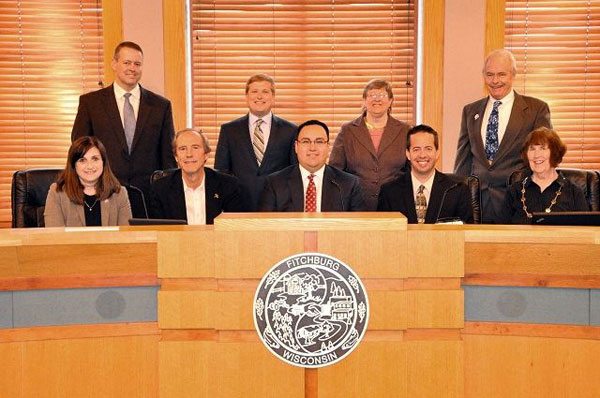
October 4, 2017; Wisconsin State Journal
A coalition of nonprofit leaders and community activists have launched a recall campaign against the new mayor of Fitchburg, Wisconsin, a suburb of some 25,000 residents just outside of Madison.
The unusual reason for this atypical action? The mayor has proposed cutting city funding for several local nonprofits that serve the less affluent sections of town in order to provide raises for city employees and to expand first responder services.
The Wisconsin State Journal reports that a group opposing Mayor Jason Gonzalez’s decision to eliminate funding for nonprofits from his proposed 2018 city budget said that “recall efforts to have him removed from office have begun and will continue unless the funding is restored.”
The mayor responded to the backlash by saying there is “wiggle room” in the $20 million budget to fund nonprofits, if the city council wants it, but he told the paper that the money might not get allocated the same way as it has been.
“There is going to be a competitive process” for nonprofits to go through to receive money from a special fund, Gonzalez said. “We’re trying to identify areas in the budget that have money that we could perhaps redirect in that direction.”
One example cited by the State Journal is the local Boys & Girls Club, which has received $50,000 from the city in each of the past three budgets. Its CEO is demanding the same funding in the 2018 budget to cover costs of providing transportation and meals for children at the club’s youth center.
Sign up for our free newsletters
Subscribe to NPQ's newsletters to have our top stories delivered directly to your inbox.
By signing up, you agree to our privacy policy and terms of use, and to receive messages from NPQ and our partners.
One city council member, Julia Arata-Fratta, wants the club to get in line with other nonprofits and tap into a single pot of money that a governmental group would oversee. Through an amendment to the budget, she hopes to move funds to nonprofits that serve the city’s most economically disadvantaged and highest crime areas.
The Boys & Girls Club has challenged the process, telling the State Journal that the plans for a competitive process have not been reviewed by community partners or city staff. Gonzalez is accusing the Club of “attempting to coerce approval from the council with tactics similar to those he has used in the past.”
The group of Fitchburg residents working to recall Gonzalez is demanding last year’s level of funding for the Boys & Girls Club, as well as funding for two other local nonprofits—a food pantry and a “Healthy Neighborhoods” program. They claim that over 2,400 families from Fitchburg’s poorest neighborhoods would be impacted by a lack of funding to the food pantries, and that a reduction in programming would affect more than 800 youths who use the Boys and Girls Club. One leader, an unsuccessful city council candidate last year, called the elimination of funding for nonprofits from Gonzalez’s proposed budget “inhuman and an injustice to the people of color.”
“Gonzalez, who grew up in a single-family household on Madison’s South Side and became the first Latino elected Fitchburg mayor when he defeated the incumbent last November, chafed at criticism that his budget ignores the needs of minorities,” said the State Journal article. The mayor cited a new park, a ride-share program, and a $50,000 appropriation from the city’s Community and Economic Development Authority as examples of how the city helps low-income underserved residents.
The budget calls for a four percent increase from 2017’s budget, which Gonzalez says pays for cost-of-living increases for city employees, in addition to a new fire station, ladder truck, and ambulance. Gonzalez said the new fire equipment will reduce response times in the city’s low-income neighborhoods.
It’s not unusual for community-based nonprofits and their supporters to vigorously and vociferously argue for funding in front of local elected officials. And it’s not unusual for community activists to use the political tool of a recall election to express their disapproval of those same elected officials. But it is unusual to see nonprofit leaders join with activists to employ that tool as leverage for getting more funding. It’s a game of hardball most nonprofits shy away from, perhaps to the detriment of their causes and clients. The merits of the argument in Fitchburg aside, it will be interesting to see how effective of a strategy it is in restoring that lost funding.—Larry Kaplan
The title of this newswire has been changed to better reflect the circumstances in Fitchburg.












